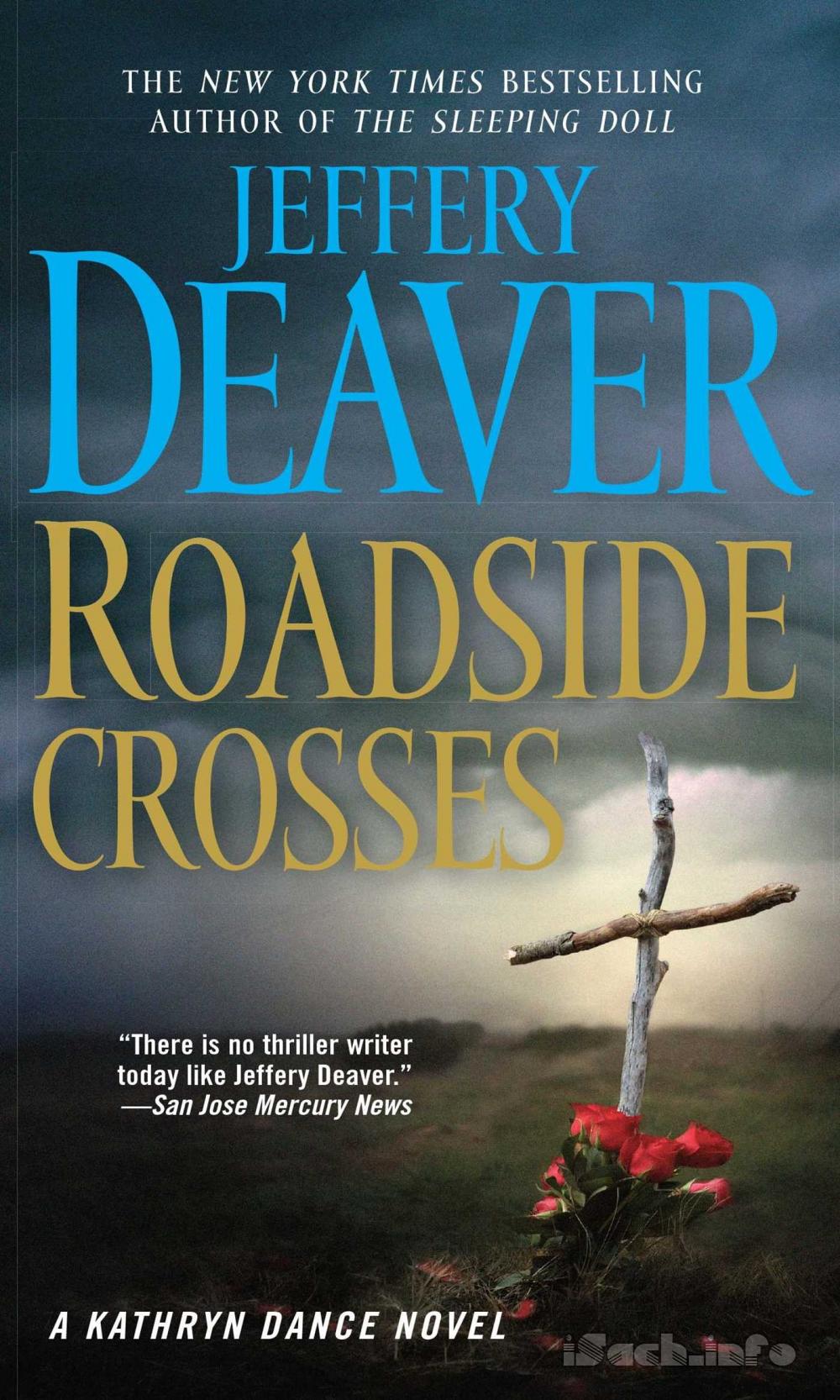Chapter 47
A
BUTTERFLY EASED along the fence and vanished into the neighbor’s yard. It wasn’t the time of year for Monarchs, the migratory lepidoptera that gave Pacific Grove its subtitle of “Butterfly Town, U.S.A.,” and Kathryn Dance wondered what kind it was.She was sitting on the Deck, which was slick from the late-afternoon fog. It was quiet now, she was alone. The children and the dogs were at her parents’. She wore faded jeans, a green sweatshirt, stylish Wish shoes, from the Brown company’s Fergie line—a treat she’d allowed herself after the conclusion of the case. She sipped white wine.
Her laptop was open in front of her. Dance had logged on as a temporary administrator to The Chilton Report after she’d found the access pass codes in one of James Chilton’s files. She consulted the book she’d been reading from, finished typing the text and uploaded it.!!!Http://www.thechiltonreport.com/html/final.html!!!
Dance read the results. Gave a faint smile.
Then logged off.
She heard heavy footsteps on the stairs leading up from the side of the house and turned to see Michael O’Neil.
“Hey.” He smiled.
She had been expecting a phone call about the magistrate’s ruling in Los Angeles as to whether the J. Doe case would proceed; he’d seemed so preoccupied at the hospital, she hadn’t expected him to show up here in person. No matter, Michael O’Neil was always welcome. She tried to read his expression. She was usually good at this—she knew him so well—but he still had on a poker face.
“Wine?”
“Sure.”
She retrieved a second glass from the kitchen and poured him his favorite red.
“I can’t stay long.”
“Okay.” Dance could barely control herself. “Well?”
The smile escaped. “We won. Got the word twenty minutes ago. The judge blew the defense out of the water.”
“For real?” Dance asked, slipping into adolescent-speak.
“Yep.”
She rose and hugged him hard. His arms slid around her back and pressed her to his solid chest.
They stepped apart and clinked glasses.
“Ernie presents to the grand jury in two weeks. There’s no doubt they’ll return a bill. They want us down there on Tuesday, nine a.m., to plan out the testimony. You up for a trip?”
“Oh, you bet I am.”
O’Neil moved to the railing. He was gazing out into the backyard, staring at a wind chime that Dance had been meaning to pick up from the spot, where she’d dumped it on a windy—and sleepless—night some time ago. He fell silent.
Something was coming, Dance could tell.
She grew alarmed. What was the story? Illness?
Was he moving?
He continued, “I was wondering…”
She waited. Her breath was fast. The wine in her glass rocked like the turbulent Pacific.
“The meeting’s on Tuesday and I was wondering if you wanted to stay down in L.A. a few extra days. We could see the sights. Get those eggs Benedict we were hoping for. Or maybe we could go out for sushi in West Hollywood and watch people trying to be cool. I could even buy a black shirt.” He was rambling.
Which Michael O’Neil never did. Ever.
Dance blinked. Her heart thudded as fast as the wings of the hummingbird hovering over the crimson feeder nearby. “I…”
He laughed and his shoulders slumped. She couldn’t imagine what her expression looked like. “Okay. There’s something else I guess I ought to say.”
“Sure.”
“Anne’s leaving.”
“What?” She gasped.
Michael O’Neil’s face was an amalgam of emotion: hope, uncertainty, pain. Perhaps the most obvious was bewilderment.
“She’s moving to San Francisco.”
A hundred questions filled her mind. She asked the first, “The children?”
“They’ll be with me.”
This news wasn’t surprising. There was no better father than Michael O’Neil. And Dance had always had her doubts about Anne’s skills at mothering, and about her desire to handle the job.
Of course, she realized. The split-up was the source of O’Neil’s troubled look at the hospital. She remembered his eyes, how hollow they seemed.
He continued, speaking with the clipped tone of somebody who’d been doing a lot of rapid-fire—and not wholly realistic—planning. Men were guilty of this more often than women. He was telling her about the children’s visiting their mother, about the reactions of his family and Anne’s, about lawyers, about what Anne would be doing in San Francisco. Dance nodded, concentrating on his words, encouraging, mostly just letting him talk.
She picked up immediately on the references to “this gallery owner” and a “friend of Anne’s in San Francisco” and “he.” The deduction she made didn’t truly surprise her, though she was furious with the woman for hurting O’Neil.
And hurt he was, devastated, though he didn’t know it yet.
And me? Dance thought. How do I feel about this?
Then she promptly tucked that consideration away, refusing to examine it right now.
O’Neil stood like a schoolboy who’d asked a girl to the eighth-grade dance. She wouldn’t have been surprised if he’d jammed his hands into his pockets and stared down at his shoe tips. “So I was just wondering, about next week. A few extra days?”
Where do we go from here? Dance thought. If she could hover over herself, looking down as a kinesic analyst, what was her body language saying? She was, on the one hand, deeply moved by the news. On the other, she was as cautious as a war-zone soldier approaching a roadside package.
The appeal of a trip with Michael O’Neil was almost overwhelming.
Yet the answer, of course, could not be yes. For one thing, O’Neil needed to be there for his children, completely there, one hundred percent there. They might not—should not—have been told about their parents’ problems at this point. Yet they would know something. Children’s intuition is a primary force of nature.
But there was another reason for Dance and O’Neil not to share personal time in Los Angeles.
And, coincidentally, it appeared just now.
“Hello?” called a man’s voice from the side yard.
Dance held Michael O’Neil’s eye, gave a tight smile and called, “Up here. In the back.”
More footsteps on the stairs and Jonathan Boling joined them. He gave a smile to O’Neil and the two men shook hands. Like Dance, he was in jeans. His knit shirt was black, under a Lands’ End windbreaker. He wore hiking boots.
“I’m a little early.”
“Not a problem.”
O’Neil was smart, and more, he was savvy. Dance could see that he understood instantly. His first reaction was dismay that he’d put her in a difficult position.
His eyes offered a sincere apology.
And hers insisted that none was necessary.
O’Neil was amused too and gave Dance a smile not unlike the one they’d shared when last year they’d heard on the car radio the Sondheim song “Send in the Clowns,” about potential lovers who just can’t seem to get together.
Timing, they both knew, was everything.
Dance said evenly, “Jonathan and I are going to Napa for the weekend.”
“Just a little get-together at my parents’ place. I always like to bring along somebody to run interference.” Boling was downplaying the getaway. The professor was smart too—he’d seen Dance and O’Neil together—and understood that he’d walked into the middle of something now. “It’s beautiful up there,” O’Neil said.
Dance remembered that he and Anne had spent their honeymoon at an inn near the Cakebread Vineyard up in wine country.
Could we just shoot these ironies dead, please? Dance thought. And she realized that her face was burning with a girlish blush.
O’Neil asked, “Wes is at your mom and dad’s?”
“Yep.”
“I’ll call him. I want to cast off at eight tomorrow.”
She loved him for keeping the fishing date with the boy, even though Dance would be out of town and O’Neil had plenty to cope with. “Thanks. He’s really looking forward to it.”
“I’m getting a copy of the decision from L.A. I’ll email it to you.”
She said, “I want to talk, Michael. Call me.”
“Sure.”
O’Neil would understand that she meant talking about him and Anne and the impending separation, not the J. Doe case.
And Dance understood that he wouldn’t call, not while she was away with Boling. He was that kind of person.
Dance felt a fast urge—a hungry urge—to hug the deputy again, put her arms around him, and she was about to. But for a man who remained unskilled at kinesic analysis, O’Neil instantly picked up on her intention. He turned and walked to the stairs. “Got to collect the kids. Pizza night. Bye, Jon. And, hey, thanks for all your help. We couldn’t’ve done it without you.”
“You owe me a tin badge,” Boling said with a grin and asked Dance if he could carry anything out to the car. She pointed out the shopping bag full of soda, water, snacks and CDs for the drive north.
Dance found herself clutching her wineglass to her chest as she watched O’Neil start down the deck stairs. She wondered if he’d turn back.
He did, briefly. They shared yet another smile, and then he was gone.



 ePub
ePub A4
A4